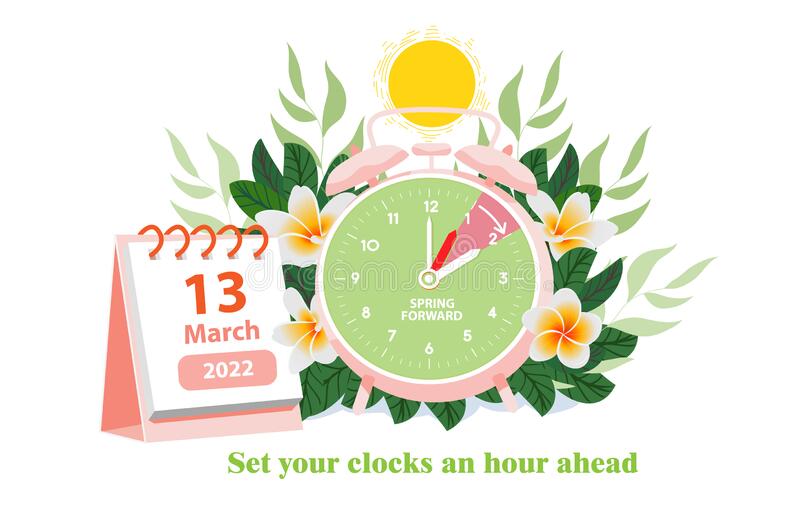I share with you this article I posted on Thrive Global last March 2021. The date for the time change is different (March 13 , 2022) and a year has passed, but the messaging endures. After another year of the pandemic and it’s challenges, springing forward gently is a wonderful way to practice self care.

As Daylight Saving Time begins on Sunday, March 14, 2021 the majority of the US will “spring forward” (minus Arizona, Hawaii, American Samoa, Puerto Rico and the Virgin Islands), setting their clocks an hour forward and effectively “losing” an hour of precious sleep. This change is unnatural to our biological clock and adapting can be a challenge.
The past year of the pandemic has already played havoc with people’s sleep, whether from work, school, and other schedule shifts as well as from the impact of anxiety on our ability to fall and stay asleep. As a result, the time change this year may be more difficult for some. You may feel extra tired when the time changes because your circadian rhythm, your body clock, is being forced to adjust to an unnatural shift. You may find it more difficult to wake up in the morning and stay awake during the day.
Remember that Daylight Saving Time is a man made manipulation. It was originally done for energy reasons, but experts are finding that it doesn’t particularly impact energy other than people’s energy. Your body clock didn’t ask you to spring forward. Society asked you to do that. Your body and brain may get confused. There are some ways that you can adapt to minimize the impact.
If you have not done some preparation in advance of the time change, such as going to bed a bit earlier and getting up a bit earlier each morning in the week leading into Daylight Saving Time, here’s a tip for tonight and tomorrow night so you can get that 7-9 hours of recommended sleep for adults: Go to bed a half hour early and sleep in an extra half hour, or you can go to bed an hour early.
Here are a few tips to help you adapt in the days after you set your clocks an hour forward:
- The most important thing following the time change is to listen to your body. If it’s four in the afternoon and you’re dragging, your body and brain may need a rest. Set a 20-minute alarm on your phone and take a power nap.
- If you’re tired early because of the time change, go to bed. Respect your sleep. Don’t answer that extra text or watch another episode on Netflix. In fact, now is a great time to get in the habit of tuning out from technology an hour before bed.
- It may be harder in the morning for a week or so when your clock says seven but your body thinks it’s six. It can help to set your alarm and then put the phone across the room at night so when it goes off in the morning, you have to get out of bed to turn it off.
- Avoid using your snooze button because that’s just wasted sleep.
- Expose yourself to daylight first thing in the morning and get moving!
- Now and going forward, maintain a consistent bedtime and wake time to support the functioning of your circadian rhythm.
Please consider the risks if you are drowsy or sleepy due to the impact of the clock change on your alertness. When you’re tired, your reaction time can be compromised. It’s particularly dangerous to drive while drowsy, with the shift to DST or any time. You’ll also want to be extra aware of the other people on the road, because they’ll be impacted, too.
The good news is that the extra hour of sunlight into the evening is likely a welcome shift after a very dark and challenging winter. That said, regardless of the seasons and clock adaptations, prioritizing your sleep and having good sleep habits will serve you well during your waking hours throughout the year.
Here are a few virtual courses to foster sleep improvement and optimize your sleep sustainably:
- Sleep Is Your Superpower on LInkedIn Learning.
- The DROWZLE Sleep Health Program, including the Sleep Well/Live Well virtual sleep improvement program and the DROWZLE app.
Wishing you good sleep, good health, and sunnier days ahead.

